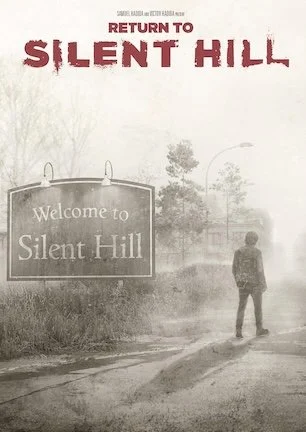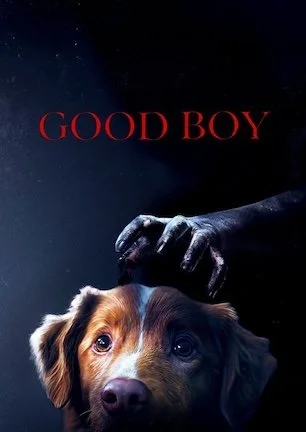Studio: 20th Century Fox
Director: Johannes Roberts
Writer: Johannes Roberts, Ernest Riera
Producer: Alexandre Aja, Rory Aitken, Ben Pugh
Stars: Sarah Wayne Callies, Jeremy Sisto, Sofia Rosinsky, Logan Creran, Suchitra Pillai
Review Score:
Summary:
A grieving mother opens a doorway to the underworld when she attempts to communicate with her dead son.
Review:
Some surefire ways to guarantee thing go sideways in a horror movie: camp in cursed woods, stay at a roadside motel, play with a Ouija board, or try bringing a loved one back from the dead. And if a wise old man or woman of another culture ever cryptically warns you to not do something, like getting your mogwai wet, you can be certain bad things will happen should you break a rule related to anything arcane.
Grieving mother Maria couldn’t care less about lessons learned from “The Monkey’s Paw” (review here) or “Pet Sematary.” When the expatriate wife’s car goes off a Mumbai bridge and into the drink, Maria finds herself in a “Sophie’s Choice” situation where saving both children in her backseat is not an option. Maria chooses young daughter Lucy, leaving young son Oliver to gurgle a gutwrenching, “don’t leave me, mommy!” before sinking into the sea.
Maria tries escaping her guilt over Oliver’s death through a handful of pills only to be thwarted by concerned husband Michael. Family caretaker Piki thinks she can help Maria find peace via an ancient Indian ritual. If Maria spreads Oliver’s ashes on the steps of an old temple and locks herself inside, she will be able to speak with Oliver through the door for one final goodbye. There is just one hitch. No matter what happens, no matter what Oliver says, under no circumstances may Maria open the door.
Wouldn’t you know it, Maria opens the door. However, the only thing she sees waiting outside is a stone-faced Aghori, an indigenous tribe of flesh-eaters who supposedly commune with the dead. It isn’t until Maria returns home that she realizes the Hell awoken by her forbidden action. Oliver has indeed returned. But he isn’t the bubbly boy everyone remembers. And the underworld entity that came with him is determined to bring Oliver back regardless of who tries standing in its way.
"Pet Sematary" director Mary Lambert cameos in "The Other Side of the Door."
“The Other Side of the Door” is describable by “not, but not” sentiments. As in, the film is not “bad,” but it is not exactly “good” either. It also is not necessarily boring, but not terribly exciting. Neither is the film remarkable, nor is it original, although as straightforward supernatural thrillers go, it’s not all the way submerged in the cellar of completely dismissible claptrap. Getting the picture of the meh-to-middling movie that “The Other Side of the Door” actually is?
When Sarah Wayne Callies turns emotional waterworks up to ten, her character Maria fires on all cylinders of sympathy, such as in a flashback where she first loses Oliver. Yet when the flick instead calls on Callies to emote the wide-eyed catatonia of a woman in depressive throes of mourning, Maria becomes an uninteresting lump nearly as soulless as Oliver’s body.
Jeremy Sisto rides both sides of a similar teeter-totter as her alternately attentive and then absentee husband Michael. Sisto also takes time to tug on heartstrings when tears well as he watches old home videos or finds his boy’s belongings in flames. Then he disappears for long stretches, relegated to being a background piece that the story doesn’t always have a place to put.
There is a constant give and take to every element in the film where one foot can’t move forward without the other taking a step back. Another example is the Indian setting and backstory, a terrific asset for putting an exotic backdrop behind an otherwise flat-flavored fable, then devalued by reinforcing stereotypes of superstitions, servitude, and sweatshops being the country’s chief stocks-in-trade.
When Piki, the Indian woman who told Maria about the resurrection ritual in the first place, later tells Maria that burning all mementos of Oliver is the only way to save his soul, Maria responds, “you’re out of your mind!” Really, Maria? You dug up your child and cremated his body in order to spread ashes on temple steps where you subsequently talked to his spirit through a door. You’ve since been stalked by ash-faced tribesman and a deformed creature, a corpse reanimated to twist its head in your direction, and all plant and animal life throughout your house (except for the family dog strangely) has inexplicably died. Yet of all things, this directive about destroying photographs is simply too outrageous to consider?
It’s frustrating to see that falling back on convention to contrive a line of dialogue or to complete a scene is the script’s preferred solution for plotting. “The Other Side of the Door” has open opportunities to be better than it is, but tries strangling blood from a stone by deriving suspense from someone fumbling to light a match, or stealing scares from a sudden bang on a window or swish pan into an audio sting.
Rounding back on a variation of that “not, but not” notion, “The Other Side of the Door” is not a movie that deserves to be completely quarantined behind “Do Not Cross” caution tape. At the same time, if you’re in the market for a vengeful ghost, resurrection/possession, or supernatural haunter horror story, there are at minimum 10 other movies in each of those categories that can scratch such an itch better than this ordinary thriller.
Review Score: 55







While the 110-minute runtime could use a trim to maintain more energy, “Redux Redux” is an easy recommend for anyone who enjoys low-key sci-fi.